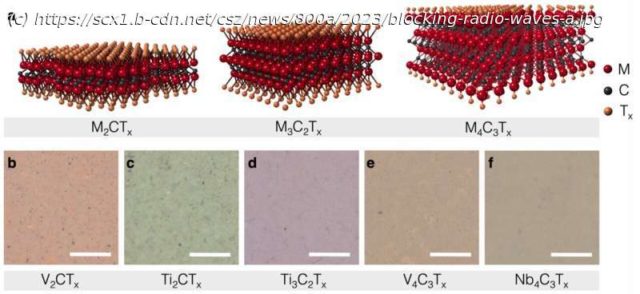Researchers in Drexel University’s College of Engineering have developed a thin film device, fabricated by spray coating, that can block electromagnetic radiation with the flip of a switch. The breakthrough, enabled by versatile two-dimensional materials called MXenes, could adjust the performance of electronic devices, strengthen wireless connections and secure mobile communications against intrusion.
Researchers in Drexel University’s College of Engineering have developed a thin film device, fabricated by spray coating, that can block electromagnetic radiation with the flip of a switch. The breakthrough, enabled by versatile two-dimensional materials called MXenes, could adjust the performance of electronic devices, strengthen wireless connections and secure mobile communications against intrusion.
The team, led by Yury Gogotsi, Ph.D., Distinguished University and Bach professor in Drexel’s College of Engineering, previously demonstrated that the two-dimensional layered MXene materials, discovered just over a decade ago, when combined with an electrolyte solution, can be turned into a potent active shield against electromagnetic waves.
This latest MXene discovery, reported in Nature Nanotechnology, shows how this shielding can be tuned when a small voltage—less than that produced by an alkaline battery—is applied.
“Dynamic control of electromagnetic wave jamming has been a significant technological challenge for protecting electronic devices working at gigahertz frequencies and a variety of other communications technologies,” Gogotsi said.
“As the number of wireless devices being used in industrial and private sectors has increased by orders of magnitude over the past decade, the urgency of this challenge has grown accordingly. This is why our discovery—which would dynamically mitigate the effect of electromagnetic interference on these devices—could have a broad impact.






